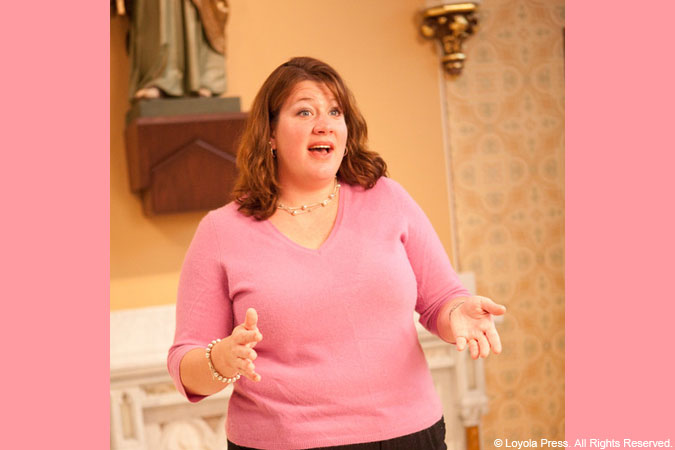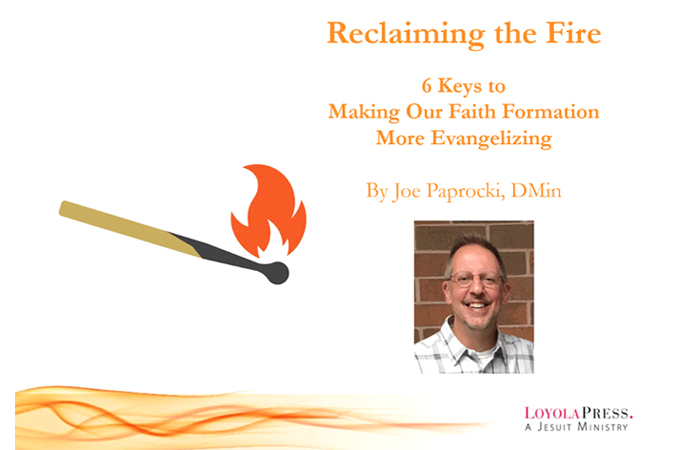
St. Paul VI once wrote, “Modern man listens more willingly to witnesses than to teachers, and if he does listen to teachers, it is because they are witnesses.” (Evangelii Nuntiandi) As someone who recently transitioned from youth minister to third-grade teacher at a Catholic school, I’ve been seeking a balance between my identities of witness and teacher in order to bring my students closer to Jesus. I have been on too many retreats where “witness talks” are more about the speakers airing their dirty laundry and trying to make the retreatants cry than they are stories of how Jesus Christ lives and moves in their lives. As I reflected on this, a moment came to mind when I was able to witness in a way that helped my teaching. It is a moment that I will not soon forget.
Moving from ministry with high schoolers to third- and fourth-graders last year was a culture shock, to say the least! As the third-grade teacher, I am also responsible for preparing the students for First Reconciliation and First Eucharist. During a Reconciliation lesson on mercy and justice, I was struggling to explain how these two realities are similar and yet different. I could tell that I was not getting through to the children and then recalled that I had a life experience when I had to choose to be merciful. The question was, Should I share a personal story?
I decided that I would, but with some clear parameters: I would make sure that the story was brief. I made sure that my story connected directly to teaching how Jesus is merciful. And I made sure that I was honest and vulnerable in a way that would not compromise my role as the authority figure in the classroom. After the lesson, as the students were packing up to go home, one of my students came up to me and told me: “Mr. A, I know what that feels like too. I think I should be merciful like Jesus, huh?” I was floored, and in that moment, I knew just how true St. Paul VI’s words were.
In your own setting, whether it is in a parish religious education program or a school, here are three questions you need to ask yourself when it comes to witness and self-disclosure:
- Is my story directly connected to what I am teaching? Many times students are eager for teachers to go off on tangents and forget what they were supposed to be doing in the first place: teaching!
- Is this story mostly for my own satisfaction, or is it to help my students get closer to Jesus? If you cannot answer this question honestly, then I recommend you do not share. Witness is meant for the hearers to draw closer to Jesus, not to put the speaker in the spotlight!
- Is it appropriate for me to share this story with young people? We must be extremely sensitive to where our students are developmentally. If you have to ask your director or principal if it is appropriate to share, chances are it isn’t.
If you can honestly say that what you want to share is directly connected to what you are teaching, benefits your students in getting closer to Jesus, and is appropriate to share, then there are only three more things you need to do before you are ready: pray to the Holy Spirit for guidance, prepare and practice your witness, and make sure it is brief!
Witness, when done well, opens up the hearers to examine their own lives and see where the Spirit is moving and inviting them to greater things. Such moments start off like a window, with the hearers looking from the outside in, and they finish like a mirror, with the hearers looking into their own lives. May your witness be moments of grace in your faith formation setting!
We hope you’re enjoying the celebration of Catholic Schools Week.





With my 2nd graders, I often share stories about my son, Matt to relate to them. For example, when talking about forgiveness, I tell them about the time when my son was in 6th grade and had a spat with one of his friends. That boy convinced the other friends not to play with Matt at recess. When Matt apologized and tried to make up with the boy–the boy would not forgive him. My son was baffled and even said to me “But mom, isn’t it supposed to forgive us our trespasses as we forgive those who trespass against us?” As I teach the same curriculum year after year, these few stories that I seed into the lessons are ones I have planned and I don’t come up with randomly.
Great story, Cindy!